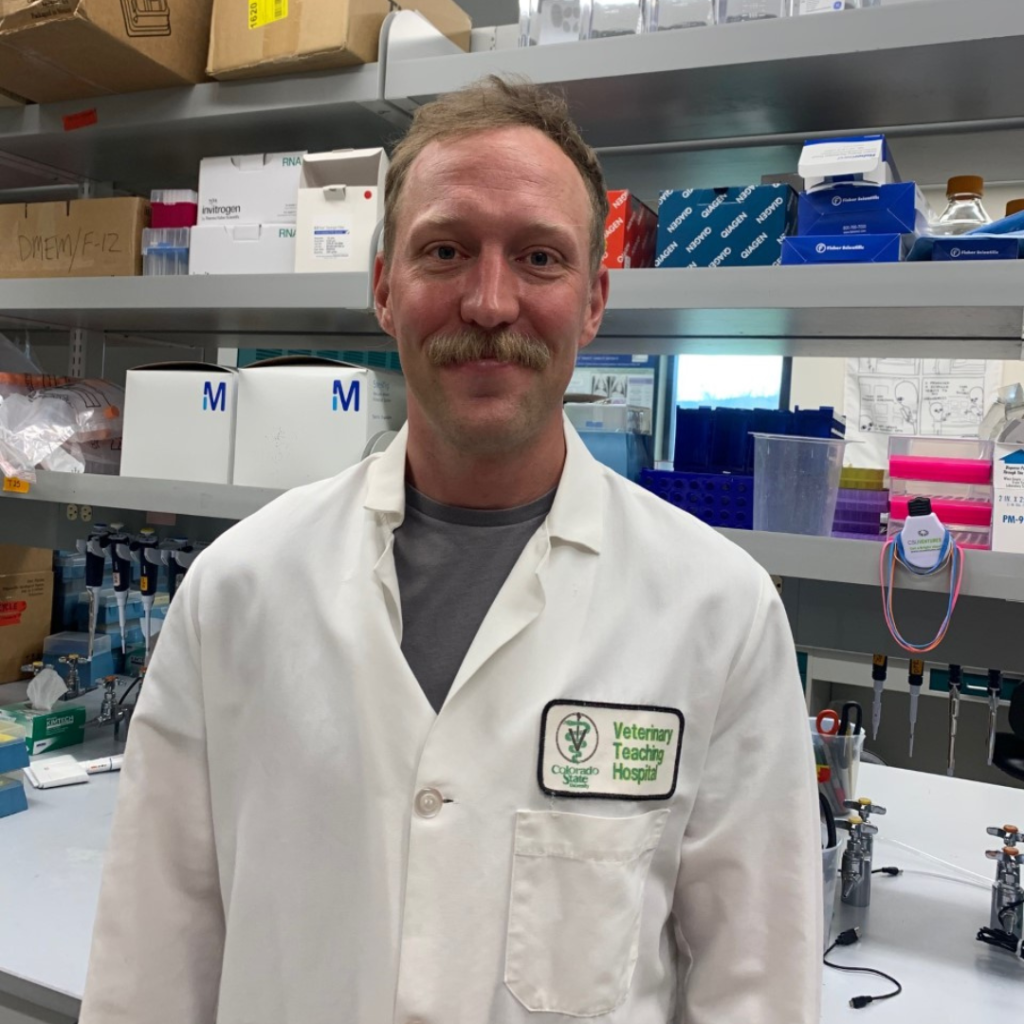
Eric Palmer
MIP PhD Student
I grew up in Aberdeen, South Dakota. For the majority of the year, the weather was cold and snowy. Any chance I got, I escaped somewhere more mild. In high school, we would come to Colorado to camp and see live music. It didn’t take long to fall in love with the place.
After high school, I moved to Fort Collins. I worked and attended classes at Front Range Community College. In a chemistry class taught by Seth Stapleton, my passion for science and research started to grow.
Following Front Range, I transferred to Colorado State University. I finished my undergraduate degree in biochemistry and then earned an MSB. I am now a PhD student in the Department of Microbiology, Immunology, & Pathology. I am studying under Dan Regan in the Investigational Pathology at the Flint Animal Cancer Center.
My work revolves around the role Osteosarcoma (OS) derived exosomes play in promoting lung metastasis and their effect on lung fibroblasts. We believe OS exosome signaling affects lung fibroblasts, which can act as a key orchestrator within tissues. This causes them to become “activated” and further supports a hospitable microenvironment for circulating tumor cells to seed in the lung and contribute to metastatic outgrowth.
This line of work is important for a few reasons. First, the current treatments, which have been around for decades, often fail when OS metastasizes to the lungs. Secondly, this disease primarily affects children and young adults. Finally, the survival rate for those who develop recurrent disease in the form of lung metastasis is dismal and completely unacceptable.
It’s critical that we understand the mechanisms that drive lung-specific OS metastasis with the goal of developing therapeutic strategies that can circumvent these events and contribute to improving survival outcomes for OS patients.
The project is well underway. I’ve now moved into testing therapeutics that can prevent this signaling and thus, slow or stop the spread of lung metastasis in patients with OS. The work has now moved into mouse models to test the theory. I am really hopeful that this work will someday have an impact on canines or even people someday.
When I’m not working, I love being outside and I still enjoy the beauty of Colorado. I like to golf, ski, and rock climb. I love music festivals and traveling to see new parts of the state. My wife, Sarah, is a veterinarian, and we have three dogs – Penguin, Rustic, and Sullivan.
I am looking forward to wrapping up this project in the coming years. I look forward to working in the field of cancer research for years to come.